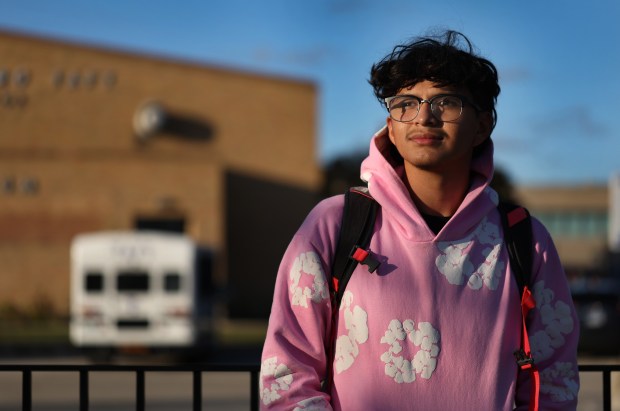While most people in the United States get ready to mark the end of daylight saving time for 2024 by turning their clocks back one hour at 2 a.m. Sunday, a group based in the western suburbs is working to put an end to daylight saving time altogether.
The Coalition for Permanent Standard Time in Darien is advocating for the abolition of daylight saving time in favor of year-round standard time. The coalition of eight organizations insists that getting rid of daylight saving time would improve public health, safety, and overall well-being.
“Daylight saving time is more harmful because it makes it darker in the morning, and people need morning light to wake up feeling good,” said Jay Pea, co-chair of the Coalition for Permanent Standard Time and president of Save Standard Time, one of the founding organizational members of the coalition. “The time of day is meant to tell you where the sun is in the sky, and that works with standard time.”
Karin Johnson, a sleep medicine physician and co-chair of the coalition’s steering committee, agreed.
“Our internal body clocks are synchronized by the natural timing cues provided by sunlight and darkness, so we never adjust to the artificial clock change caused by daylight saving time,” she said.
Johnson said extensive research indicates that seasonal time changes are disruptive to health.
“The shift to daylight saving time in the spring has been linked to an increase in motor vehicle accidents, cardiovascular events, and medical errors in the days following the change,” she said.
And while some have advocated for year-round daylight saving time, that isn’t a good idea, Johnson said.
“The dark side of permanent daylight saving time is that it would cause us to experience darkness later in the morning, especially during the shorter days of winter,” she said. “In some parts of the U.S., sunrise wouldn’t occur until after 9 a.m. in the winter, putting children at risk as they wait for the bus or walk to school in the dark.”
The coalition said there is widespread support for ending the biannual time changes and added that several states have passed legislation to eliminate seasonal time changes, contingent on federal approval. Additionally, a recent survey from the American Academy of Sleep Medicine concluded that 64% of U.S. adults support eliminating seasonal time changes.
Pea said the Coalition for Permanent Standard Time, which first met in 2023, is advocating at state and federal levels to make standard time permanent.
Currently, Arizona and Hawaii are the only states that have standard time all year. Daylight saving time was enacted as a legal requirement by the Uniform Time Act of 1966, according to the United States Department of Transportation’s Bureau of Transportation Statistics. It begins annually on the second Sunday in March and ends on the first Sunday in November.
Daylight saving time also was implemented during World War I and eventually lifted, before being brought back again during World War II and lifted again, Pea said.
“In the 50s, retailers wanted it because they believed it helped their sales to have it stay lighter later in the day,” he said.
The Coalition for Permanent Standard Time is based in Darien, because the village is home to the American Academy of Sleep Medicine, which coordinates the coalition.
The American Academy of Sleep Medicine is the only professional society in the country dedicated exclusively to the medical subspecialty of sleep medicine. It was established in 1975, has 80 full-time employees and built its own offices in Darien in 2010. It coordinates the accreditation of sleep medicine facilities in the U.S.
The association’s senior director, Thomas Heffron, said the coalition provides resources and services for its members. The founding members of the coalition are the American Academy of Sleep Medicine, National Sleep Foundation, Save Standard Time, Sleep Research Society, and Society for Research on Biological Rhythms.
“Restoring permanent standard time would provide long-term health and safety benefits,” Johnson said. “Observing standard time year-round would help all of us to sleep and feel better during every season.”
Chuck Fieldman is a freelance reporter for Pioneer Press.




